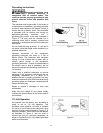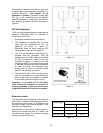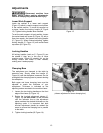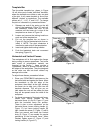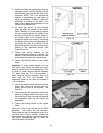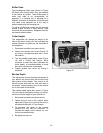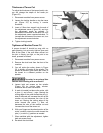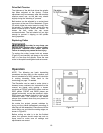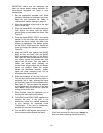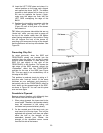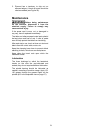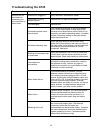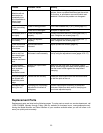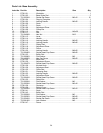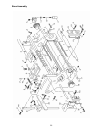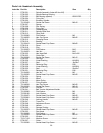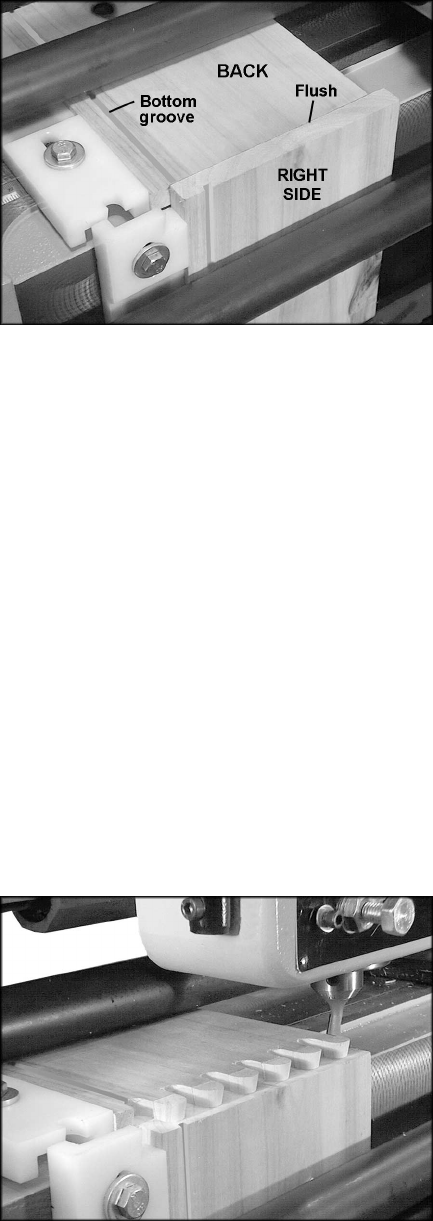
19
IMPORTANT: Make sure the workpiece has
been cut square before making dovetails. An
out-of-square workpiece will result in poor
dovetail joints.
1. Set the appropriate template size, fence
positions, clamping bar thickness, and cutter
depth for your particular job. Refer to
“Adjustments” section starting on page 13.
2. Move the headstock all the way to the right
and out of the way.
3. Place the drawer BACK on top the table and
flush against the fence, with the bottom
groove facing up and toward the fence. See
Figure 26.
4. Place the drawer RIGHT SIDE in the vertical
position on top the lower work support and
against the fence. Adjust the lower work
support as necessary. The bottom groove
on the RIGHT SIDE should be toward the
fence and facing the operator, as shown in
Figure 26.
5. Make the BACK butt against the RIGHT
SIDE so they are flush, with the RIGHT
SIDE overlapping the edge of the BACK.
See Figure 26. Both pieces should be firmly
and evenly against the fences with their
edges flush as shown. You may need to
loosen and tighten each clamping bar
several times as you adjust the two drawer
pieces into position. When the drawer
pieces are positioned correctly, tighten
upper and lower clamping bars. Do not
overtighten the clamping bars.
6. Slide the headstock all the way to the left.
Turn on the machine and move the cutter in
sequence, left to right, allowing the tracer
pin to move in and out of the template slots.
See Figure 27. You can watch the progress
of the cut through the window of the dust
hood. NOTE: Do not rush the cut; allow the
cutting unit to do the work.
7. When finished, slide the headstock out of
the way and unclamp the workpieces.
8. Fit the BACK and RIGHT SIDE together and
examine the joint. If the joint is not
satisfactory, make any needed corrections
to your settings as explained under
“Adjustments.” If the joint is satisfactory,
proceed with the next cut as follows.
9. Turn the BACK 180 degrees and clamp it in
the horizontal position against the fence.
Figure 26
Figure 27
(Dust hood removed for clarity only; always use
dust hood when operating dovetail machine.)



